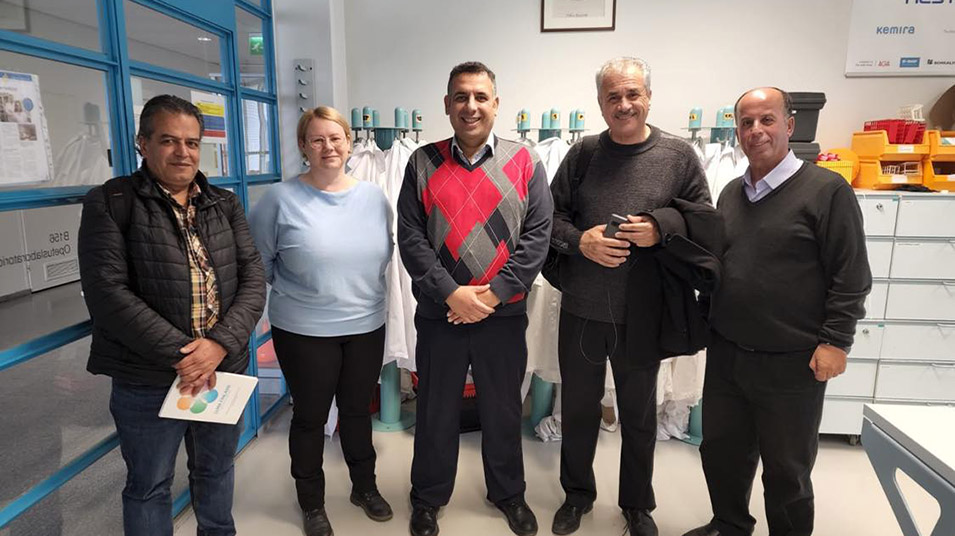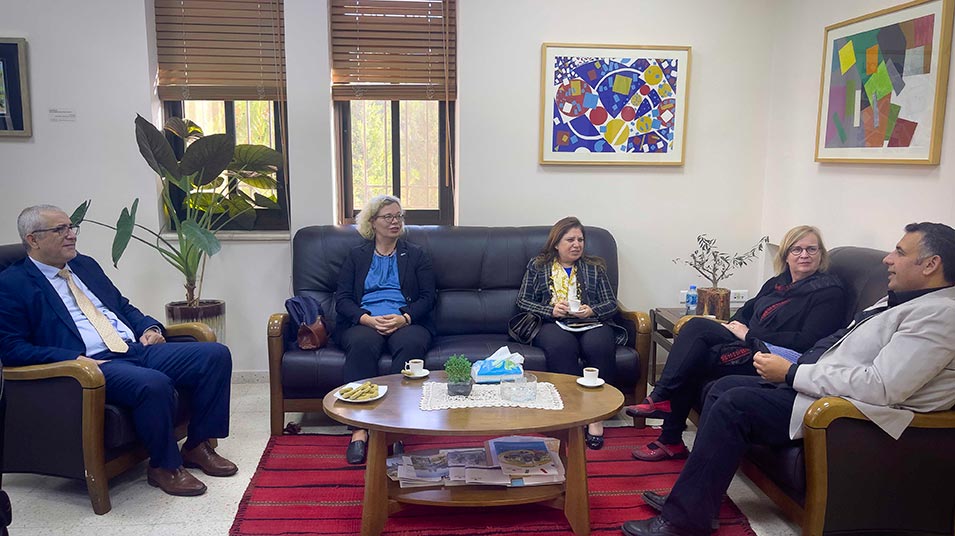Olive Teacher Education without Walls – New models for STEM and Teacher Education in the Digital age
The long term outcome of this project is elevating the level of the primary mandatory education in Palestine, this is done through narrowing the digital gap and enhancing the accessibility of knowledge for all. The educational challenges are handled through outcomes that are based upon creating digital educational environments, upgrading the educational syllabus, renewing the bachelors and teacher training diplomas, assisting the pedagogical leadership, and working alongside the educational management in Palestine. The result of this project will be the complete shift of teacher education which supplies the teachers with the necessary skills to deploy modern techniques and online education methods.
The project has greatly affected the educational environment through establishing online active platforms. These platforms operate by easing the sharing and releasing of the outcomes between the partners and wider audience, which further enhances the transformation of the education culture. These platforms are built upon the easy access internet solutions. The establishment of science, , engineering, mathematics labs helps the foundation of the primary skills necessary to elevate digital knowledge.
The project has enabled the teachers to discover new teaching methodologies that are based upon flexible teaching of the students, such as : Blended (BL), Mobile Learning, Flipped Classrooms, and Maker teaching methodologies. These ensure the necessity of research based upon self-organization and cooperation between the students, yet they also allow more freedom in regards to the time, place, and the intensity of it.
In regards to updating the programs and courses, the bachelors of science, mathematics, and physics programs have been updated towards a multi-major teaching method in science, IT, engineering and mathematics (STEM). The components of the programs have been revised cooperatively and enhanced in an educationally safe and close manner that allows the teacher to teach these skills to primary and secondary schools.
On top of that, the teacher training diploma has been updated. The update is based upon the teaching methodology that uses blended learning, flipped learning, and also the technological and pedagogical content knowledge
(TPACK) which deploys digital teaching methods and intertwines it with the content and teachings.
Finally, the project has enhanced the educational leadership in primary schools. The frames of this wide-based leadership is both technical and human leadership. The direct educational leadership, indirect technical leadership, and indirect pedagogical leadership make up the basis of the leader.




